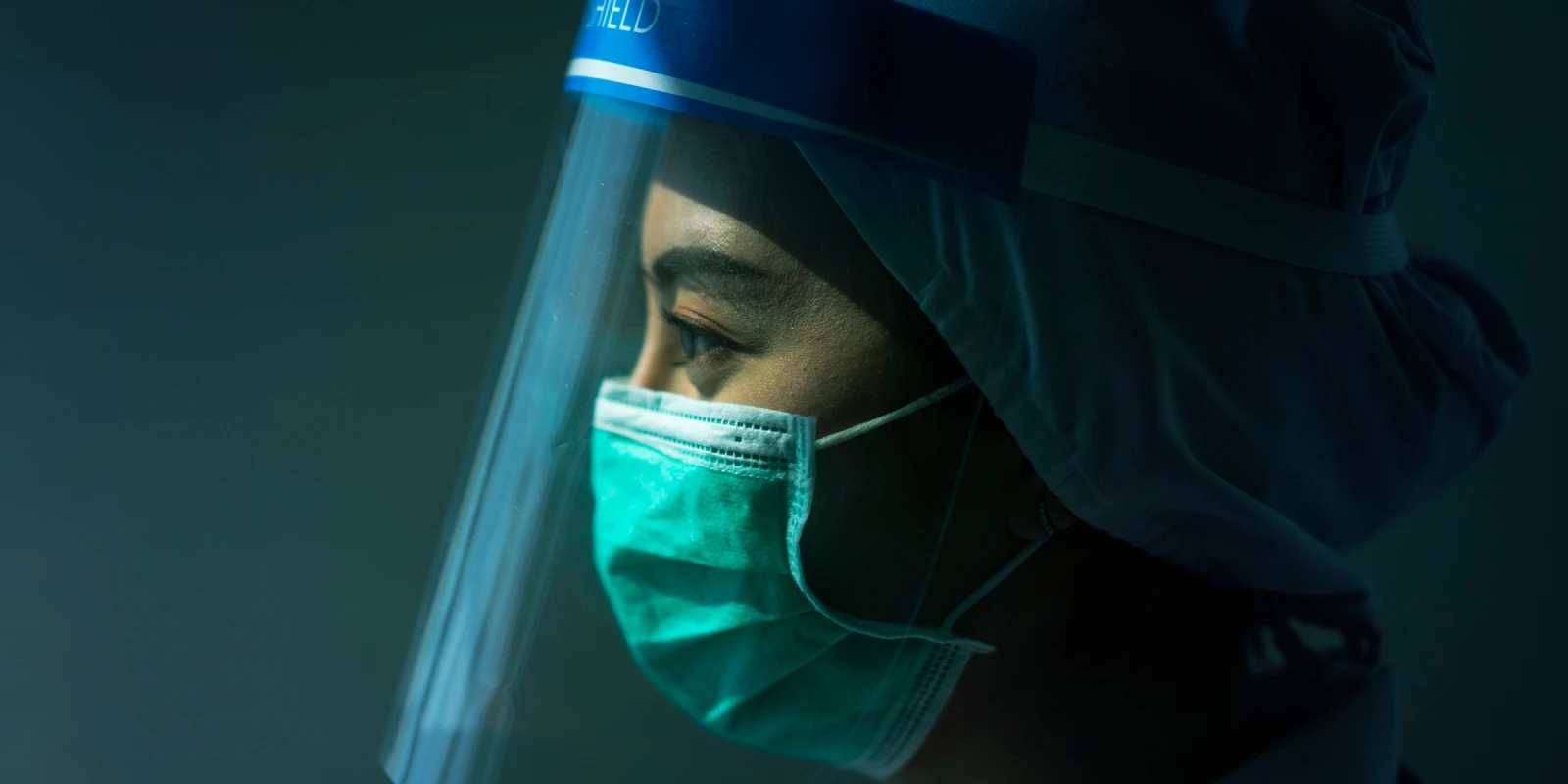It is hard enough to be an intern, let alone an intern in the middle of a global pandemic. In addition to learning how to diagnose, treat, perform procedures, and identify critically ill patients, we have been learning how to cope with constantly witnessing the most brutal and honest human experiences: emotional trauma, sadness, and pain. While I might have anticipated this emotional burden, what I didn’t anticipate — or train for — was the resultant feeling of futility.
I have been an intern resident physician in Chicago for almost a year now. My last few months of medical school were full of uncertainty — my canceled ICU rotation, weekly university-wide coronavirus updates, watching the numbers of available hospital beds dwindle nationwide. Like most other 2020 graduates, I celebrated four years of medical training over Zoom. Everything changed on July 1, when I walked into the ED for the first time as a physician and immediately entered the fray; my very first patient tested positive for COVID-19. The nurse and I donned our disposable gowns, goggles, gloves, N95s, and masks, before we entered the room. I stumbled through introducing myself. “My name is Dr. Halloran, and I’ll be one of the people taking care of you today.” I barely convinced myself or the patient.
Ever since then, I have seen the heart-wrenching emotional cost of both this pandemic and medicine as a whole. A patient with COVID-19 who had difficulty getting enough oxygen into her body listened to her husband tell her he loved her right before I inserted a tube into her lungs to help her breathe. The wife of another patient with COVID-19 pulled me aside outside her husband’s room; she told me he had a weak immune system, and she was devastated that her work as a home health nurse might have exposed him to the virus. There were stories of hospital staff treating their own critically ill co-workers. These were daily occurrences, and they took their toll on us.
And with so much sadness these past months, I wondered — did I matter? Did I make a difference? Did my work help this patient and their family?
I spent my days providing care, helped where I could, listened to fears and concerns. I became more confident with procedures I never thought I could perform as a medical student. I learned so much every day, yet still felt that I would never know enough to be competent and confident. During my ICU night shifts, I had to pronounce a patient dead for the first time, she had her code status as DNR. Her nurse sat with her and held her hand while she died alone in her room as my senior resident and I attended a code across the unit. The nurse and my senior resident helped me go through the steps, listening to her silent heart and lungs, shining a light into her open, yet unseeing, eyes until it was time to call it. As we left her room, my senior asked how I was doing as I swallowed back tears. I went down to the ED to see my co-residents. They told me their stories of their first death exams. I felt understood — they knew exactly how I was feeling. They’d been here before. I cried in the elevator, then swallowed my sadness before I returned to the ICU to call the patient’s husband.
Months later, after work, I continued to see people as they walked outside without masks. I heard my neighbors having another party. During my commute to the hospital one day, I caught faint snippets of strangers’ conversations about how “we sure did overreact to this COVID-19 business, didn’t we?” A flash of anger caught me in my tracks. I thought of our full ICUs and my patient earlier with COVID-19 who needed a ventilator. I thought about all of the death I had seen, of the families I had called to tell them their loved one had died, of the many death exams I have now performed. Once again, I wondered if what I did mattered.
But I return to the hospital, don my N95 mask, and I am reminded of the difference we do make, of the connections that we forge with patients and their families, not only during times of their greatest struggles, but also in the quiet moments. It’s easy for me to overlook the small differences we make day to day and the impact we have.
Every time I start to lose sight of this meaning, another patient brings it back up to the foreground. An older woman comes to the ED for abdominal pain. Our imaging reveals a high likelihood of cancer, so I discuss the findings with the patient. As we sit together in her room, a small moment of stillness in an otherwise busy ED, she tells me about her faith, her husband, and the inner strength that she has.
These moments show me that I feel the most connected to my patients during times of quiet and emotional honesty. I have tried to block the ever-growing internal wave of sadness from the tragedies I have seen, to bury my feelings down to protect myself, but, in burying my feelings, I built an impenetrable wall. How can I connect with patients and empathize with them and their struggles if I have effectively numbed myself and my emotions? Through my patients, I have learned how to be more open, more empathetic, more understanding. Through these moments of vulnerability, I am reminded that our actions do matter, we do make a difference, and we do not go unnoticed.
When did you experience your lowest point in practice? How did you push through? Share your advice with your colleagues below in the comments.
Diana Halloran is an emergency medicine intern physician currently completing her residency in Chicago. She received her medical degree from the University of Florida College of Medicine. She works and writes at the intersection of health policy, inequality, and education, and her research and writing has been featured by the American College of Emergency Physicians and Slate. She can be found on Twitter at @Diana_Halloran







